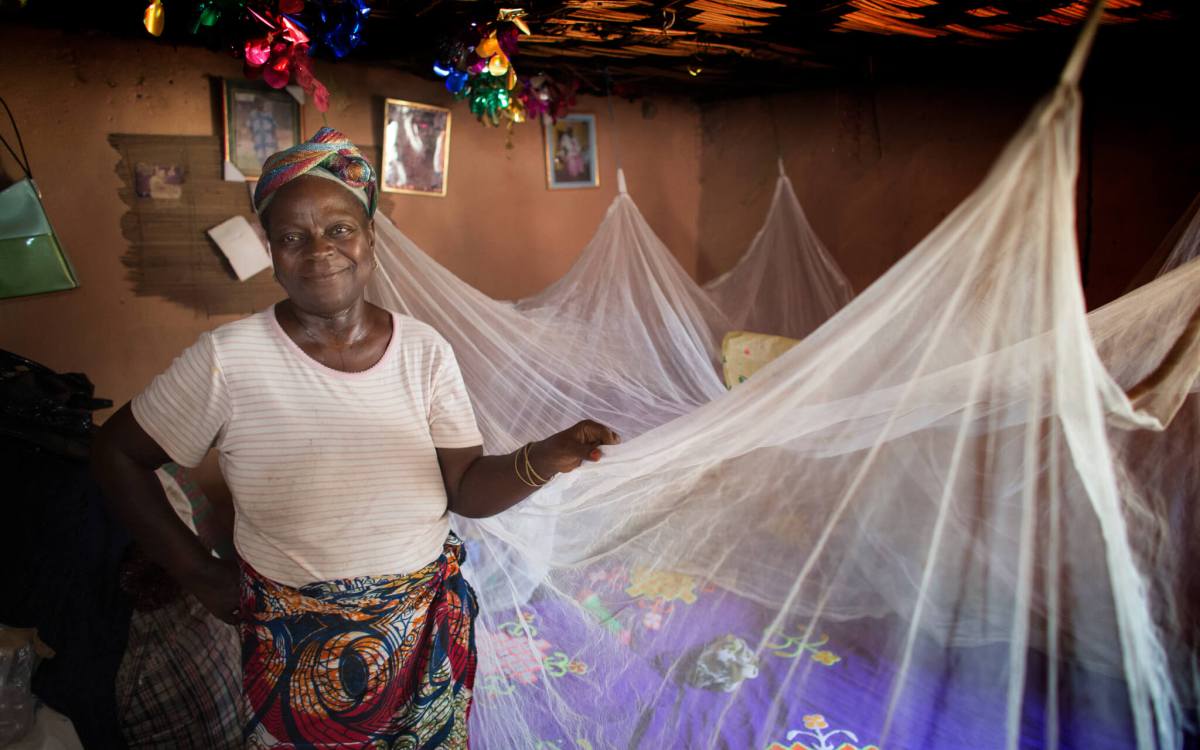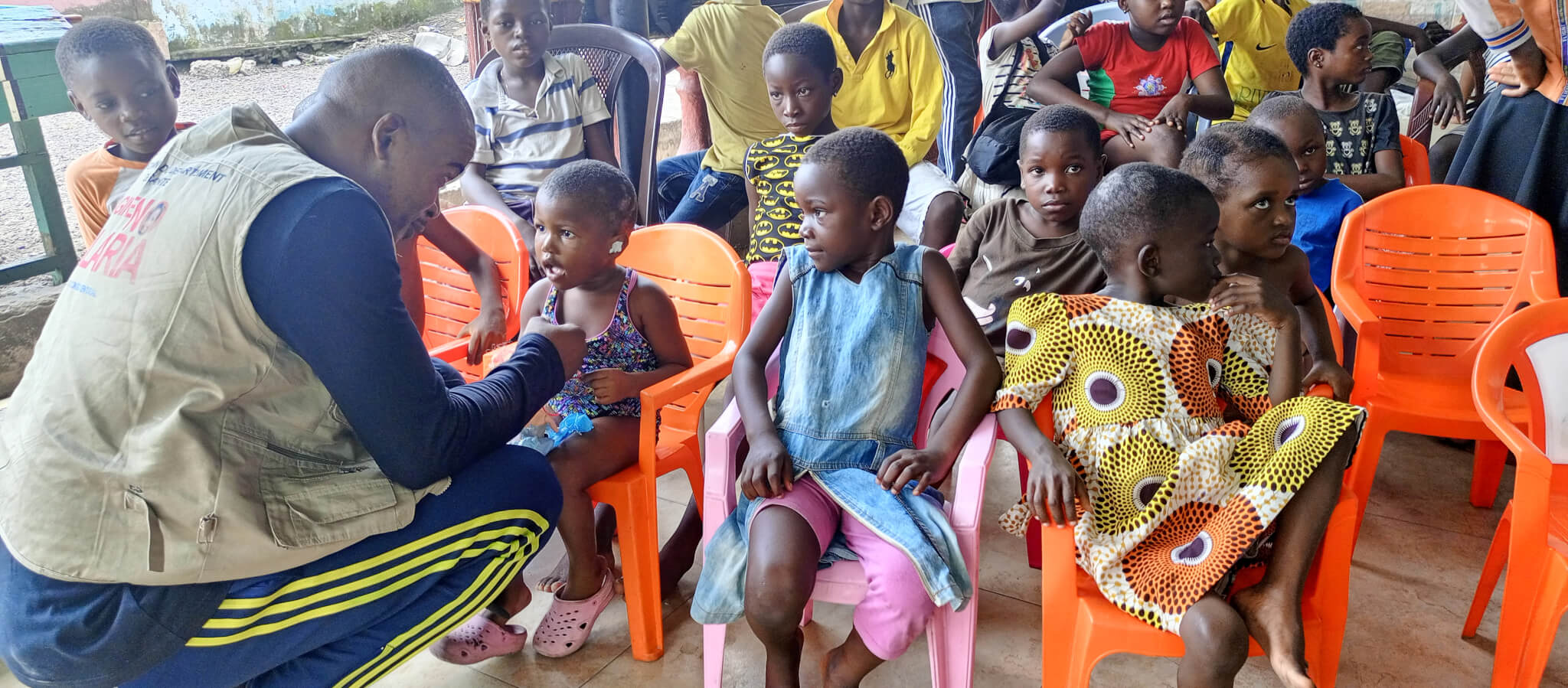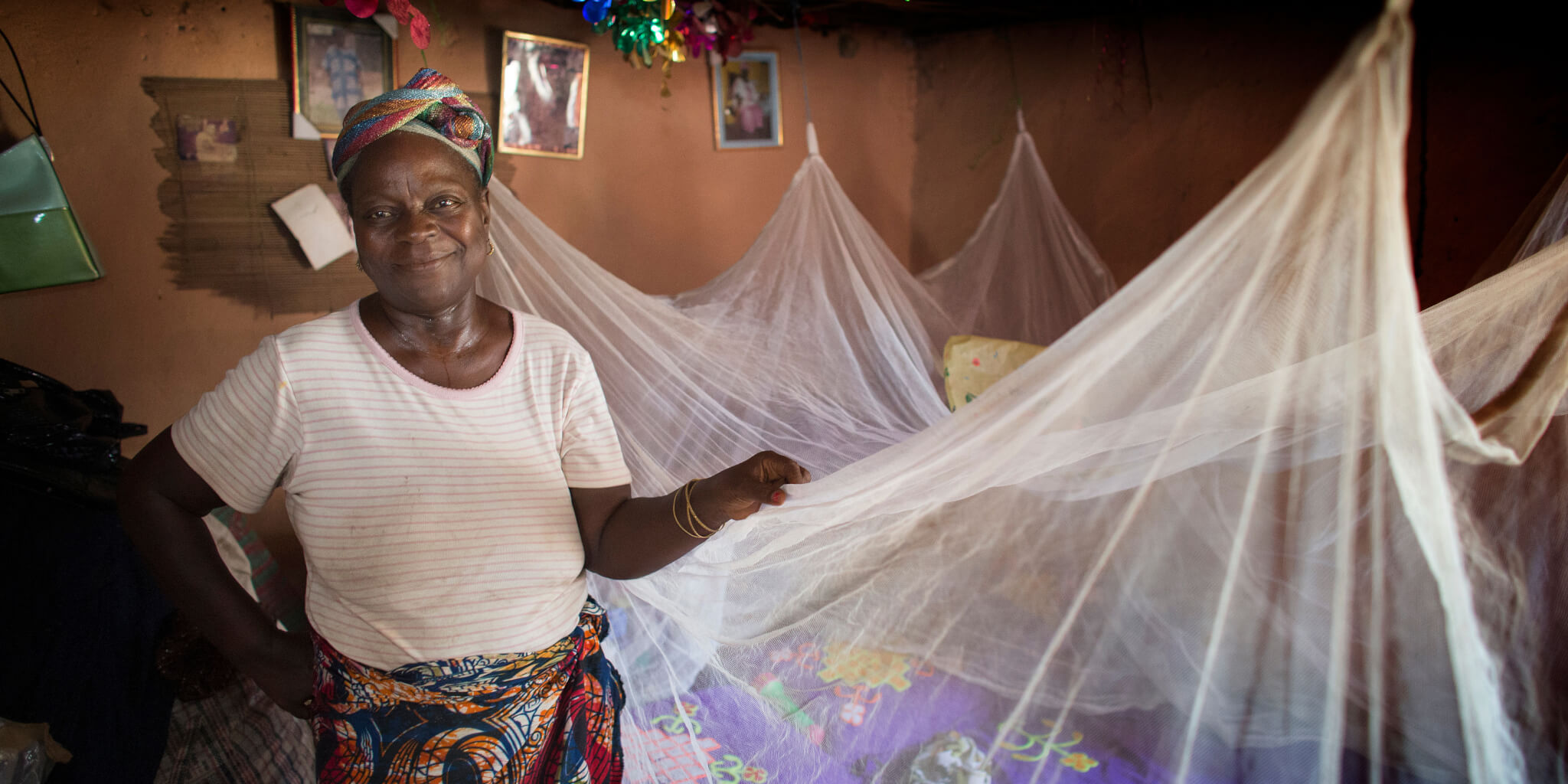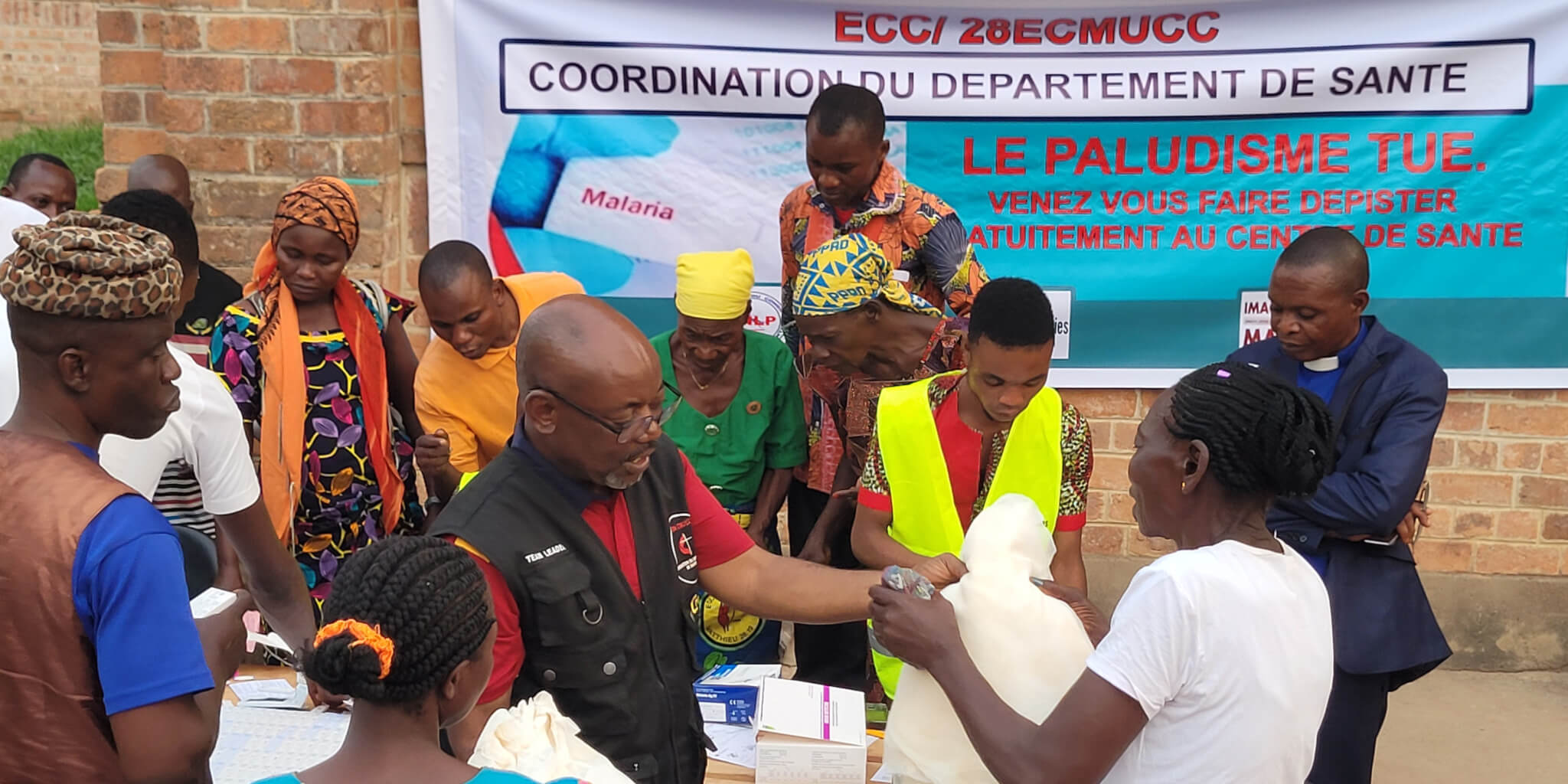
Matilda Ndanema displays the insecticide-treated mosquito net she received from the United Methodist Church’s Imagine No Malaria campaign in 2010 at her home in Bumpe, near Bo, Sierra Leone. The insecticide is nearing the end of its useful life and several villages in the Bo district will receive new nets from the campaign in the first planned redistribution to replace the nets given in 2010. (Photo: Mike DuBose, UMNS)
Imagine No Malaria
Malaria is one of the leading causes of morbidity and mortality globally. More than 200 million people are infected and 400,000 die from the disease each year. An overwhelming concentration of cases is in Sub-Saharan Africa, with pregnant woman and children under 5 being most vulnerable.
Through the distribution of mosquito nets, early diagnosis and treatment of malaria, and education and training of UMC health facility staff and community health workers, The United Methodist Church through Global Ministries’ Imagine No Malaria program has played a vital role in the reduction of illness and death from the disease since 2008.




